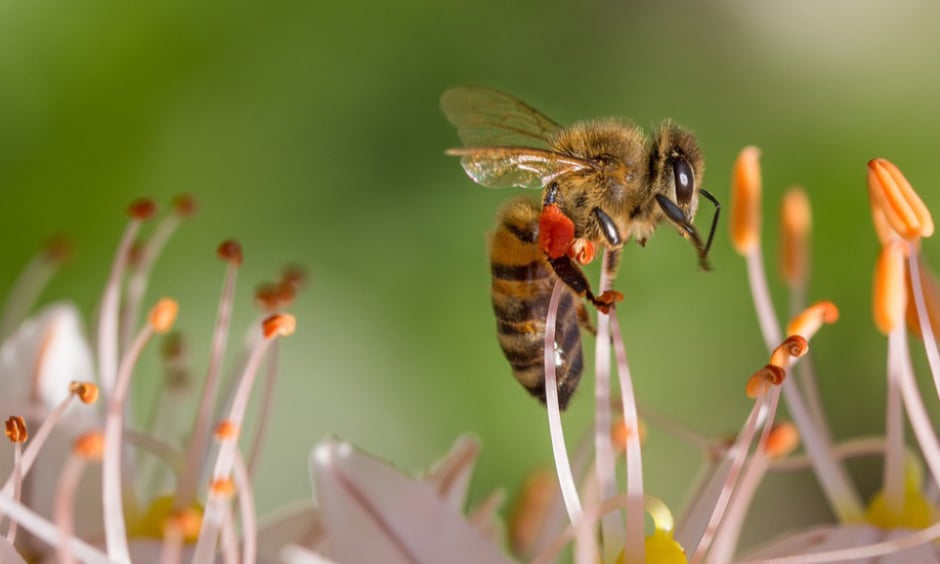SEVERE allergic reactions to bee venom can be more effectively prevented by a new vaccine containing a novel adjuvant called Advax, according to the results of a recently completed clinical trial. The research provides a boost for people who suffer an anaphylaxis reaction to bee stings, which can have fatal consequences.
While the current immunotherapy method can prevent anaphylaxis occurring in the majority of cases, there are drawbacks. With the available formulation, people have to take 50 injectable doses over a period of 3 years to achieve a clinically useful level of immunity, a process which is costly and reduces acceptability to users. Anaphylactic reactions can also still occur in patients who are receiving doses.
“The current treatment option for serious bee venom allergies is lengthy and cumbersome, so I hope this enhanced bee venom therapy brings about faster, but longer lasting protection to bee stings for allergic individuals,” commented one of the authors, Anthony Smith, Allergy and Clinical Immunology Department, Flinders Medical Centre, South Australia, Australia.
In the study, the team wanted to observe the safety and effectiveness of honeybee venom immunotherapy (HBVIT) when used in combination with Advax. A cohort of 27 adults with a history of developing rapid systemic allergies in response to bee stings were included in the randomised controlled trial and were randomly assigned to either receive the vaccine alone or alongside Advax adjuvant. Following the attainment of maintenance doses, immunotherapy continued in all the patients once a month for a 30-month period.
All the patients were found to have a good safety profile, suffered no severe adverse reactions, and each developed blocking IgG antibodies early in the HBVIT course, which was sustained. However, participants in the Advax adjuvant had a stronger immune reaction, achieved peak levels earlier, reached higher levels, and sustained high levels for longer periods than those receiving the vaccine alone.
Another of the authors, Prof Nikolai Petrovsky, Flinders University, South Australia, Australia, added: “Our technology is like adding a turbocharger to a car and in this case makes the bee allergy vaccine much more powerful, allowing the immune system to better neutralise the bee venom and prevent allergic symptoms.”






